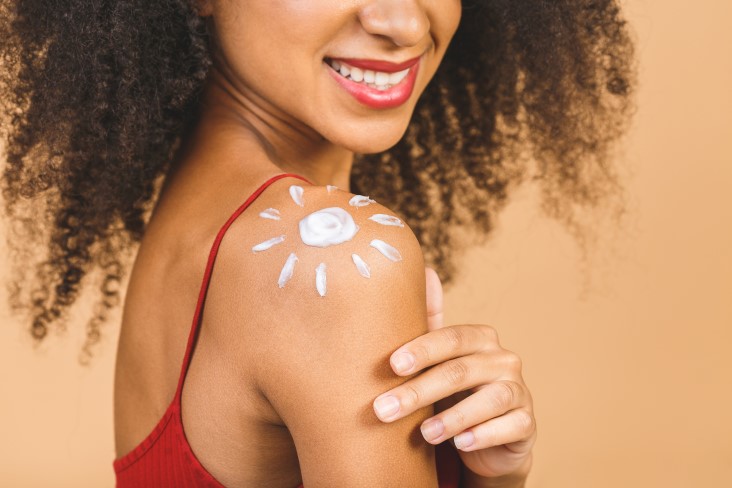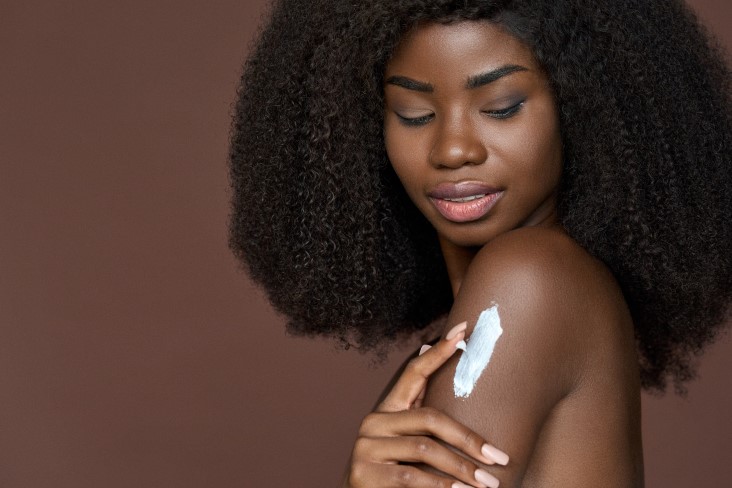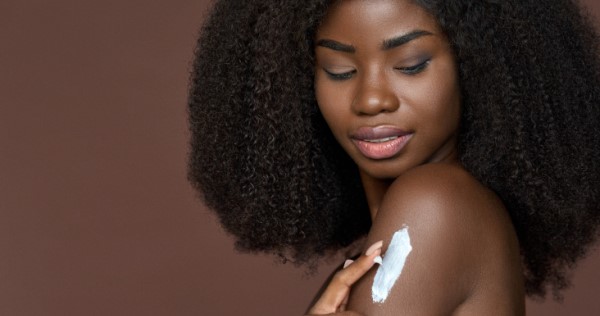
Sunscreen is an important part of staying safe and healthy. It doesn’t matter if you’re an aspiring beauty guru or you’ve never actually applied makeup. Most people know that sunscreen is an important part of staying safe. However, many people also believe that if you have darker skin, you don’t need sunscreen, or that your skin protects itself. This is a complete myth, and darker skin tones do need UV protection. Not convinced? Here are some pieces of information to keep in mind.
Melanin Protects, But Not Entirely
Melanin is the molecule that gives skin its color, and the basis for this myth is that melanin does absorb some UV rays. Even when it comes to fair-skinned people, those with lighter skin burn more quickly than those with darker skin, and those with warm skin tones may burn less than those with cool skin tones. However, melanin doesn’t protect completely, and even those with the absolute darkest skin tones can still burn. It can even be more difficult to notice, as the red tint that shows up on lighter skin may not show up on darker skin, but indications of a sunburn can include your skin feeling hot, tight, and itchy.
Even Small Amounts of UV Rays Can Increase Cancer Risk
Additionally, anyone can develop skin cancer from UV rays, no matter how few of those UV rays actually get into the skin. You need to use sunscreen to absorb all of those rays. Additionally, people with darker skin who do develop skin cancer may actually be at higher risk of death, as they might not pay attention to the warning signs due to their beliefs about skin cancer. You’ll keep yourself much safer if you’re willing to put on sunscreen every day.
Sun Exposure Causes Aging in All Skin Tones
One of the less-deadly impacts of sun exposure is that it can cause aging for all skin tones, even darker tones. If you’re interested in keeping your skin looking as great as possible for years to come, prioritize avoidance of UV rays. UV exposure can cause sagging and wrinkle development, as well as irregular skin tone and liver spots. These can be difficult and expensive to fix, and in some cases may be permanent.
You Can Find a Sunscreen for Any Skin Tone
Dark-skinned people sometimes shy away from sunscreen due to an ashy or pale residue on their skin. If you’re fair-skinned, you might not notice this residue, as your skin already has this light tone. However, much darker skin can have a very apparent difference. This has led to a rise in sunscreen manufacturers who market their sunscreens directly toward those with darker skin, avoiding that ashy residue entirely. This makes it easier for all people to stay protected from the sun.
Conclusion

Regardless of your skin color, it’s important to use sunscreen. It doesn’t matter if you have incredibly pale skin that burns within minutes of going outside or very dark skin that doesn’t seem to ever burn, sunscreen can protect your skin from aging, skin cancer, and other problems. Plus, there are many sunscreens out there, including ones available to you. If you’ve noticed that you’re interested in skin care for underserved populations, the esthetics program from Ogle School might be the right choice for you. This program helps you learn more about creative and scientific skin care, giving you more opportunities to pass on your knowledge.



